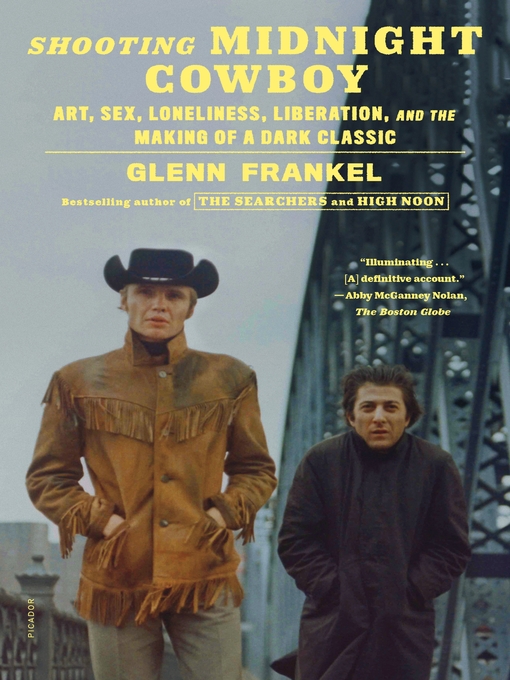"Much more than a page-turner. It's the first essential work of cultural history of the new decade." —Charles Kaiser, The Guardian
One of The Washington Post's 50 best nonfiction books of 2021 | A Publishers Weekly best book of 2021
The Pulitzer Prize–winning journalist and New York Times–bestselling author of the behind-the-scenes explorations of the classic American Westerns High Noon and The Searchers now reveals the history of the controversial 1969 Oscar-winning film that signaled a dramatic shift in American popular culture.
Director John Schlesinger's Darling was nominated for five Academy Awards, and introduced the world to the transcendently talented Julie Christie. Suddenly the toast of Hollywood, Schlesinger used his newfound clout to film an expensive, Panavision adaptation of Far from the Madding Crowd. Expectations were huge, making the movie's complete critical and commercial failure even more devastating, and Schlesinger suddenly found himself persona non grata in the Hollywood circles he had hoped to conquer.
Given his recent travails, Schlesinger's next project seemed doubly daring, bordering on foolish. James Leo Herlihy's novel Midnight Cowboy, about a Texas hustler trying to survive on the mean streets of 1960's New York, was dark and transgressive. Perhaps something about the book's unsparing portrait of cultural alienation resonated with him. His decision to film it began one of the unlikelier convergences in cinematic history, centered around a city that seemed, at first glance, as unwelcoming as Herlihy's novel itself.
Glenn Frankel's Shooting Midnight Cowboy tells the story of a modern classic that, by all accounts, should never have become one in the first place. The film's boundary-pushing subject matter—homosexuality, prostitution, sexual assault—earned it an X rating when it first appeared in cinemas in 1969. For Midnight Cowboy, Schlesinger—who had never made a film in the United States—enlisted Jerome Hellman, a producer coming off his own recent flop and smarting from a failed marriage, and Waldo Salt, a formerly blacklisted screenwriter with a tortured past. The decision to shoot on location in New York, at a time when the city was approaching its gritty nadir, backfired when a sanitation strike filled Manhattan with garbage fires and fears of dysentery.
Much more than a history of Schlesinger's film, Shooting Midnight Cowboy is an arresting glimpse into the world from which it emerged: a troubled city that nurtured the talents and ambitions of the pioneering Polish cinematographer Adam Holender and legendary casting director Marion Dougherty, who discovered both Dustin Hoffman and Jon Voight and supported them for the roles of "Ratso" Rizzo and Joe Buck—leading to one of the most intensely moving joint performances ever to appear on screen. We follow Herlihy himself as he moves from the experimental confines of Black Mountain College to the theatres of Broadway, influenced by close relationships with Tennessee Williams and Anaïs Nin, and yet unable to find lasting literary success.
By turns madcap and serious, and enriched by interviews with Hoffman, Voight, and others, Shooting Midnight Cowboy: Art, Sex, Loneliness, Liberation, and the Making of a Dark Classic is not only the definitive account of the film that unleashed a new wave of innovation in American cinema, but also the story of a country—and an industry—beginning to break free from decades of cultural and sexual repression.

-
Creators
-
Publisher
-
Release date
March 16, 2021 -
Formats
-
Kindle Book
-
OverDrive Read
- ISBN: 9780374719210
-
EPUB ebook
- ISBN: 9780374719210
- File size: 20796 KB
-
-
Accessibility
-
Languages
- English
-
Reviews

Loading
Formats
- Kindle Book
- OverDrive Read
- EPUB ebook
subjects
Languages
- English
Why is availability limited?
×Availability can change throughout the month based on the library's budget. You can still place a hold on the title, and your hold will be automatically filled as soon as the title is available again.
The Kindle Book format for this title is not supported on:
×Read-along ebook
×The OverDrive Read format of this ebook has professional narration that plays while you read in your browser. Learn more here.